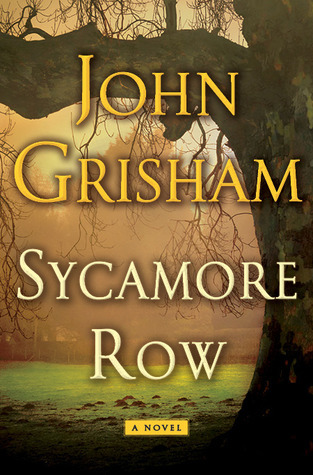TL;DR
In 'Sycamore Row,' a wealthy man, Seth Hubbard, commits suicide and leaves his fortune to his black maid, igniting a controversial trial that forces a community to confront its racial tensions and history.
What is Sycamore Row about
'Sycamore Row' is a legal thriller by John Grisham that centers on Seth Hubbard, a wealthy man dying of lung cancer who chooses to leave his considerable fortune to his black maid, rather than his estranged children. The story unfolds as Jake Brigance, the attorney from Grisham’s previous novel 'A Time to Kill,' takes on the case, leading to a courtroom battle that reveals deep-seated racial tensions in the community of Ford County. The handwritten will raises questions about Hubbard's mental state and motives, prompting a dramatic confrontation over issues of race, legacy, and justice. Through the narrative, Grisham explores themes of trust, betrayal, and the complexities of human relationships against the backdrop of a racially divided society.
Sycamore Row 6 Key Takeaways
Seth Hubbard's decision to commit suicide.
As the story opens, Seth Hubbard, a wealthy man suffering from terminal lung cancer, decides to take his own life. Before doing so, he writes a new will leaving most of his fortune to his maid, which sets the stage for the ensuing legal battle.
The revelation of the new will and its implications.
Hubbard's will shocks his family and the community, leading to questions about his mental state at the time of writing. This sets off a legal challenge that brings to the forefront issues of race and inheritance.
Jake Brigance's involvement in the case.
Jake Brigance, the protagonist from 'A Time to Kill,' is drawn back into the legal world when he is asked to defend the validity of Hubbard's will. His involvement reignites old tensions and brings new challenges.
The courtroom trial and its racial undertones.
The trial becomes a focal point for racial discussions within Ford County, as the community grapples with the implications of Hubbard's decision to leave his wealth to a black woman.
The climax of the trial and the truth about Hubbard's intentions.
As the trial progresses, secrets about Hubbard's life and his relationships are revealed, prompting the jury and the community to reconsider their prejudices and assumptions.
The resolution and its impact on the characters.
The conclusion of the trial not only determines the fate of the will but also transforms the lives of those involved, highlighting themes of justice and redemption.
Top Sycamore Row Quotes
- 'The truth is a flawed thing, often buried under layers of silence and denial.'
- 'Justice isn't always served in a court of law; sometimes it lies in the hearts of those who dare to question the status quo.'
Who should read Sycamore Row?
'Sycamore Row' is ideal for readers interested in legal dramas, social justice, and explorations of race relations. It appeals to those who appreciate Grisham's intricate storytelling and wish to engage with thought-provoking themes that resonate in contemporary society.
Sycamore Row Best Reviews
- 'Grisham's storytelling is as sharp as ever, weaving a complex tale of wealth, race, and morality that keeps readers hooked until the last page.' - The New York Times
- 'With 'Sycamore Row', Grisham delivers a riveting sequel filled with tension, ethical dilemmas, and an exploration of societal issues that resonate today.' - Publishers Weekly
People also liked these summaries
Sycamore Row FAQs
Is 'Sycamore Row' a sequel to 'A Time to Kill'?
Yes, 'Sycamore Row' features returning characters from 'A Time to Kill', particularly Jake Brigance, but it can also be read as a standalone novel.
What are the main themes of 'Sycamore Row'?
The main themes include racial tension, justice, betrayal, and the complexity of human relationships, all set against the backdrop of a legal battle.
Has 'Sycamore Row' been adapted into a film?
As of now, 'Sycamore Row' has not been adapted into a film, although there are plans for adaptations of other Grisham novels.
